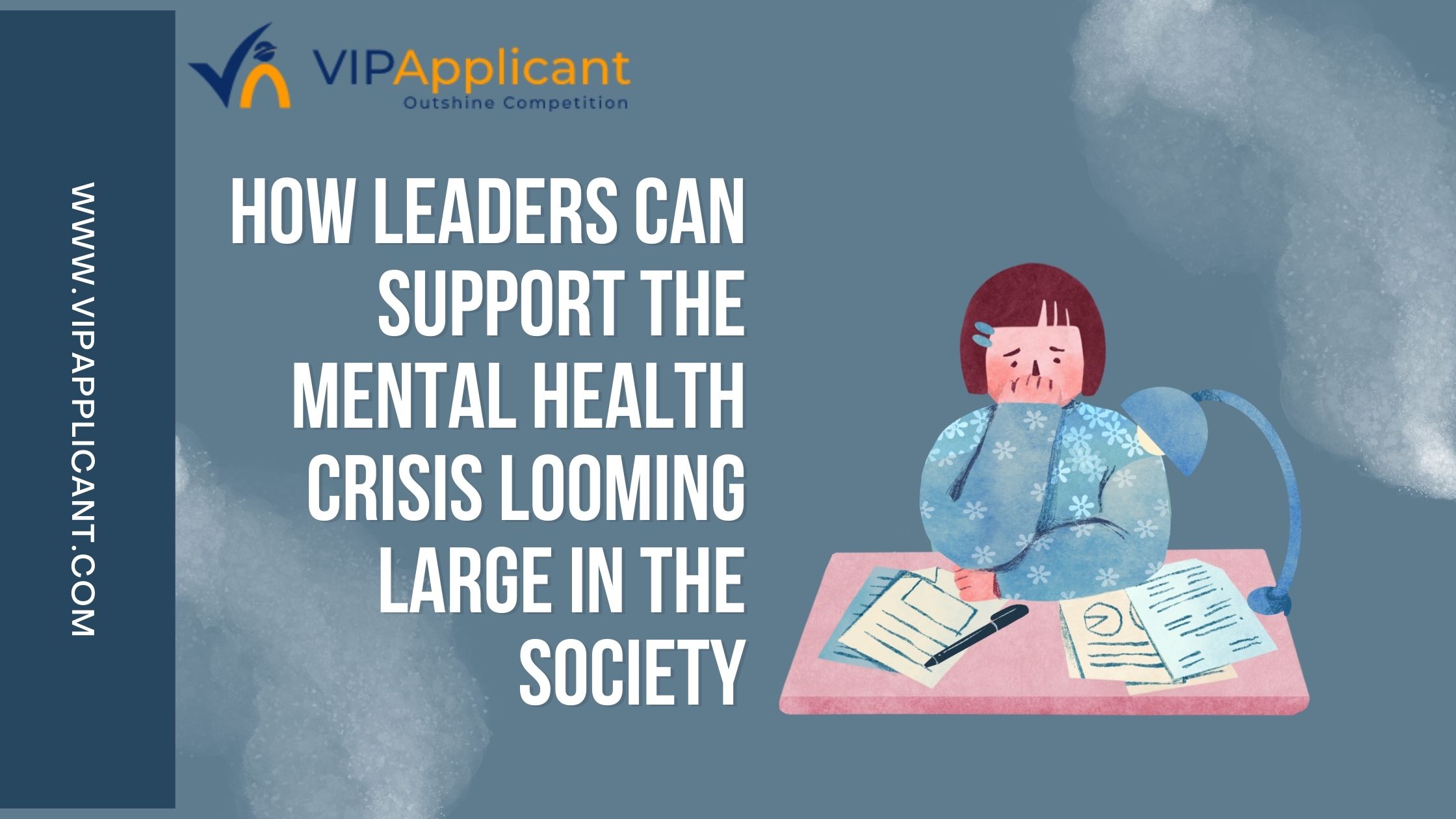
20 Jan How Leaders can Support the Mental Health Crisis Looming Large in the Society?
The ongoing pandemic has been an eye-opener of sorts. In the past centuries, diseases, natural disasters and wars were an inseparable part of life. People had learnt how to live with uncertainty. Moreover, the distractions were fewer, and it was easy to find happiness in whatever little resources people had.
 However, when Covid-19 struck the world, the first reaction was disbelief. We couldn’t fathom the fact that a teeny-weeny virus could house-arrest us and topple our lives. People were not used to living such an unanticipated life. Two years since then, we are still reeling under it and living an unpredictable life that oscillates between lockdowns and accepting the new normal.
However, when Covid-19 struck the world, the first reaction was disbelief. We couldn’t fathom the fact that a teeny-weeny virus could house-arrest us and topple our lives. People were not used to living such an unanticipated life. Two years since then, we are still reeling under it and living an unpredictable life that oscillates between lockdowns and accepting the new normal.
Covid-19 has also highlighted the mental health crisis that seems to be looming large. Apart from depression, anxiety and post-traumatic stress-related disorders in Covid patients, the mental health issues in the general population are more alarming. It is distressing that most of these issues go unnoticed and tend to increase progressively.
In the last two years, several organizations have done a decent job of acknowledging this mental health crisis. However, few have gone beyond addressing the issue and doing something concrete other than hosting webinars. Some organizations offer anonymous on-call experts to offer a helping hand to their employees. We need more. Much More.
It has already been established that motivation is the key to being productive. For so long, organizations have tried to motivate the employees with better roles and competitive remuneration, and it has worked. However, the needle is moving, and the needs of millennials are changing too.
Grappling with a pandemic of an enormous magnitude, people want to live a more meaningful life and focus on their mental health. Research has found that job satisfaction and mental health are closely related. It may come as a surprise to employers, but job satisfaction does not mean only good pay. Instead, it is the social aspects of the job, like relationships at work and how much an employee enjoys the work, that matter more.
 Among all these things, the relationship with the boss or the manager dictates job satisfaction. It won’t be wrong to say that an unpleasant working relationship with the manager translates into low job satisfaction.
Among all these things, the relationship with the boss or the manager dictates job satisfaction. It won’t be wrong to say that an unpleasant working relationship with the manager translates into low job satisfaction.
Leaders have to play a crucial role if they want the employees to be happy – not just in the office but also outside it. Here is how managers can foster a better working relationship with their subordinates and support their mental health.
Be vulnerable and share your problems
Mental health disorders come with a whole lot of baggage and stigma. You cannot expect people to wake up one day and start sharing their problems with you. The need of the hour is to give them an environment where they feel accepted and valued despite their issues.
All of us go through our share of problems and when you do, try to have a transparent conversation with your team. Let them know that you are prioritizing a staycation because you feel burnt out. Or that you won’t be able to attend a meeting because you are seeing your therapist.
Check-in with your team frequently
Even since the pandemic broke out, people have been working from their homes. Their social life has gone for a toss. Asking them how they are doing can go a long way in letting them know they are valued. Do it regularly and ask them if they need more support from you.
While you are at it, make it a point to listen to them. Encourage your team members to share more if you feel they are hesitating. Be gentle and compassionate. It is not necessary to have all the answers and solutions. It is more important to convey that your employees have a safe space in their office where they are heard.
Be flexible
Due to the pandemic, people are confined to their houses, home-schooling their children, and going through a lot. Their circumstances are going to change and so are their needs. Some of them may have some crucial transition points in their personal lives.
As a leader, you can offer help only when you know what is going on in their lives. When you check in with them, take a customized approach. For instance, the needs of a working mother will be different from a person who lost a parent in the pandemic.
Apart from this, allow them the flexibility to do their job in the hours they see fit. Give them the option to work for fewer hours if it helps their cause. Tell your team that it is a time to be compassionate and help each other sail through their challenges.
Managers who do not communicate can alienate themselves from their teams. More so when they are working remotely and have limited access.
Communicate regularly with your team and let them know about any organizational updates. If there is a new policy, clarify their doubts. With regards to project deadlines and other work, let them know what is negotiable and what is not. Help them priorities the workload and be willing to listen to their problems.
To wrap up
In the post-pandemic world, leaders will have to shoulder a huge responsibility. They will have to be at the front line and address the mental health issues of their employees to ensure their well-being in their personal lives and productivity at work.


No Comments